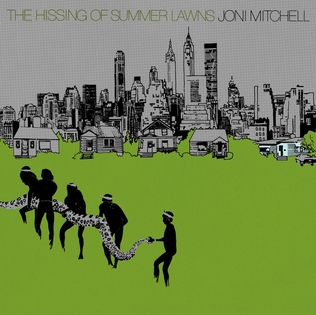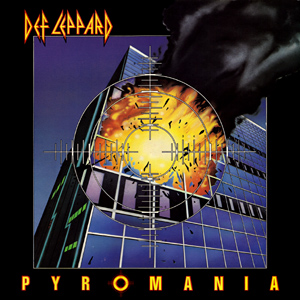Zack: This is the second of four Joni Mitchell albums
on the list. When we started this project, I had no idea who Joni Mitchell was,
and so I was skeptical that that was an appropriate number. But then I heard
Blue, and album that I listen to maybe once a year and think “Wow, this album
is perfect. Why don’t I listen to this more than once a year?” Despite the fact
that I’ve only listened to Blue like 3 times, how incredible it is had me
pretty excited for The Hissing of Summer Lawns. But the two albums are completely
different. Whereas Blue is a pretty straightforward folk album, The Hissing of
Summer Lawns draws on a more eclectic mix of genres. There’s a fair mix of jazz
here, and it gets a lot more rockish on songs like In France They Kiss on Main
Street. The last track, Shadows and Light, even gets a bit experimental by
drawing on some looping and electronic-y music. I didn’t like that song, but
still. What remains constant is the thoughtful lyrics. I didn’t pick up on a
lot of this while I listened to the album, but in reading the lyrics now I can
see what intricate stories Mitchell is trying to craft. Between the two, I
definitely think Blue is the superior album. But The Hissing of Summer Lawns
certainly has its moments, and the way Mitchell pushes the boundaries of folk
can be are pretty interesting.
Favorite Tracks: The Hissing of Summer Lawns; In France They
Kiss on Main Street; Edith and the Kingpin
Emily: Looking back at where we wrote about Joni Mitchell before, my search brought me to our 200-album award post. I had nominated Blue, our first foray into Joni Mitchell's catalog, for an album that I wanted to return to later on. Since then, I don't think I've actually relistened to it. Perhaps I've heard a song here or there as it popped up on a playlist, but I haven't sat down and played the whole thing since then. Now, after listening to The Hissing of Summer Lawns, it appears I have double the Joni Mitchell albums to return to in the future. For one, I love the title of the album. It evokes such a strong and beautiful image of a quiet street, lined with trees and houses, on a breezy, sunny summer day. And the title fits the tone of the album beautifully as well. It's another intimate take on folk, balanced out with jazz, rock, and a touch of experimentation. As Zack noted, the lyrics deserve a deeper listen to fully understand the scope of the story. I intend to learn more about that story, alongside Mitchell's stories on Blue, when I return to them again.
Favorite Tracks: Harry's House/Centerpiece; In France They Kiss on Main Street; The Boho Dance


